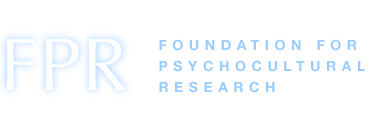FPR Workshop on Culture, Brain, and Psychopathology
Pacific Palisades, California
May 17-18, 2008
A workshop was held on May 17–18, 2008, in Pacific Palisades, California, to develop the conceptual framework and draft agenda for a major FPR conference in 2010 on Cultural and Biological Contexts of Psychiatric Disorder: Implications for Diagnosis and Treatment. Participants included FPR board and staff, moderator Denis Praeger; UCLA faculty (neuroscientists Robert Bilder and Kelsey Martin, historian and psychiatrist Joel Braslow); and psychiatrists Laurence Kirmayer (McGill University) and J. David Kinzie and James Boehnlein (both of Oregon Health and Science University).
The group discussed an alternative framework for understanding psychiatric disorder in terms of dimensions, thresholds, contexts, and trajectories. Participants agreed that the conference would address the following issues, among others:
- One of the major changes anticipated for the DSM is the inclusion of dimensional assessments for most disorders, which cut across diagnostic categories. For example, dimensions in schizophrenia would include cognitive impairment, depression, mania, and anxiety. Participants felt that a benefit of defining psychiatric disorders categorically as well as along various dimensions in DSM-V is that the disorders can be addressed more easily by neuroscientists, anthropologists, and clinicians, as well as by interdisciplinary collaborations. Another benefit over previous classifications is that the manifold of symptoms associated with a given mental disorder is not masked by the “dominant” symptoms listed in the DSM, which tend to become the focus of both clinicians and patients.
- Defining thresholds – knowing when a condition reaches the point of pathology, requiring intervention – is of critical importance to clinicians and can be studied at the level of the cell, the brain, and the person. One question the group considered was how the threshold for intervention is influenced by culture.
- The group also discussed the importance of context or predicament – how the proximal and distal contexts in which individuals live affect the onset, severity, and course of their mental illness.
- A fourth issue relates to the absence of standard trajectories for psychiatric illness and recovery. Trajectories are influenced by underlying biological processes; compliance with and responsiveness to treatment; expectations of the patient, clinician, and family; and social context. Finally, cultural models of illness and health also influence the various ways in which illness is experienced and recovery is defined.
The group felt that perhaps the greatest challenge facing the field of mental health is how to relate biological mechanisms to complex mental conditions. For this reason, the organizers have sought to include at the conference scientists who work at the systems level, such as biologically trained behavioral scientists, who can help connect biological processes with dimensions of illness. In addition, workshop participants identified four cross-cutting themes that should be addressed in each session of the conference: (i) resilience; (ii) development; (iii) the health–illness continuum; and (iv) how the cultures of science and medicine shape how researchers, clinicians, and the media approach mental health and illness.
List of Participants
Robert Bilder (UCLA)
James Boehnlein (Oregon Health & Science University)
Joel T. Braslow (UCLA)
Carole Browner (UCLA, FPR)
Marie-Françoise Chesselet (UCLA, FPR)
Constance Cummings (FPR)
Douglas Hollan (UCLA, FPR)
Marjorie Kagawa-Singer (UCLA, FPR)
J. David Kinzie (Oregon Health & Science University)
Laurence Kirmayer (McGill University)
Robert Lemelson (UCLA, FPR)
Steven Lopez (USC, FPR)
Kelsey Martin (UCLA)
Beate Ritz (UCLA, FPR)
